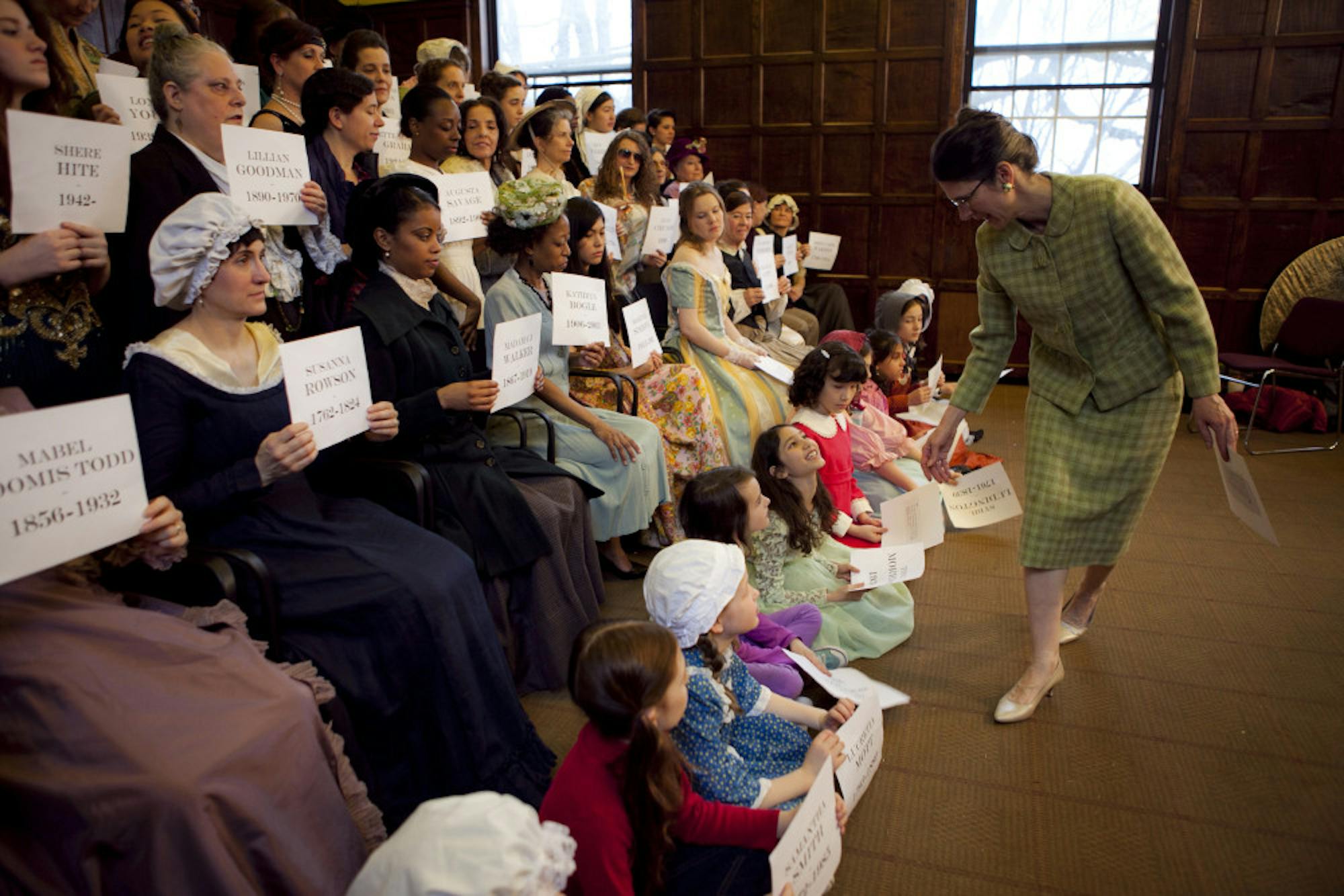Tufts faculty members Julie Dobrow and Jennifer Burton discussed their new short-form media project, “Half the History,” at this year’s first Tisch College Civic Life Lunch on Sept. 19. The project aims to spread the untold stories of prominent women from American history through various forms of media on its website, which will fully launch next March.
The project, which also includes a special exhibit in the lobby of Barnum Hall, centers around the notion that while women make up half the world’s population, the majority of historical records focus on only men.
Burton is a professor in film and a film producer at Five Sisters Productions. Among commercials, public service announcements and shorts, Burton has produced seven feature films.
“Part of what’s on the website are the films … short podcasts and short biographies,” Burton said. “Mostly, we’re gonna have biographies because they’re easier to do right, to write a couple paragraphs on each person. And really, it’s educational.”
Dobrow, a senior lecturer at the Eliot-Pearson Department of Child Study and Human Development, said that she and Burton had long been looking to collaborate on a project together.
“It’s short form,” Dobrow said. “And the reason for that is that we really want to have a lot of different entry points for people. So it’s not just the short attention span that many of us have [from] growing up in the age of TikTok, but it’s also that we really want [the website] to be a place that scholars can go, as well as students in middle school and high school.”
Dobrow said that while they are initially focusing on American women, they plan to eventually expand the project globally. The project is primarily staffed by undergraduate and graduate students.
“We’ve been working with a number of students, some of them are sitting in this room, who have been wonderful helping us to think about who should be included,” Dobrow said.
Dobrow explained that they “collaborated with a number of colleagues … to try to think about what are some of the through lines of women’s lives.”
“The intent is to steer people to other resources — into full length biographies, to full length documentaries, to other sorts of both primary and secondary sources,” Dobrow said.
Dobrow shared that one of the challenges that the Half the History team is currently facing relates to incomplete records. She has written two full length biographies and experienced that challenge firsthand. One solution, though, is “to look beyond the printed record to try to find other ways of trying to tell the stories of women’s lives,” she said.
Burton said that “some of this work can carve the path for future discoveries.”
She explained this idea by talking about historical composer Florence Price, whose story and work were lost until researchers put in the effort to find it. Burton films her interviews so that “future researchers will have those words.”
The team is currently working on a project about the 19th century Female Anti-Slavery Society, whose all-female membership was uniquely diverse.
“There were women who were white, there were women who were Black … there were women who were young, and women who were old, there were women who were educated and there were women who did not have a lot of formal education,” Dobrow said.
Burton is producing a film which focuses on one member, Ellen Garrison, “the only person of color that we know of,” who marched in a historical bicentennial parade at age 12.
The team will have actors dressed in clothing from 1835 and will be shooting in Concord, Mass. — where Garrison is from.
Another one of their projects involved adding more women’s biographies to Wikipedia, which currently comprise only 18% of total biographies on the site, as one audience member pointed out.
Dobrow and Burton will co-teach an interdisciplinary class in the spring. Students will have the opportunity “to do research, [and] to learn about putting together a film,” Dobrow said. In class, students will learn about the stories they want to tell and the best ways to tell them.
Burton emphasized how important it is for the success of the project for a lot of people to be involved.
“We need so many people to be telling the stories because there’s just so many of them, right? So my students each will tell [stories] so that expands it,” Burton said.






